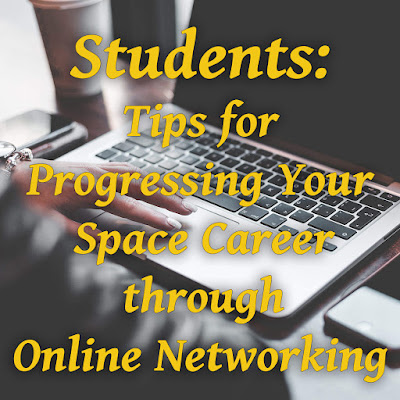I recently had a conversation with a client about discerning a PhD program as a mid-level professional. His major concern was the time commitment. Is it worth dedicating several years, perhaps balancing a full-time job and a family, to gain the credential and title Doctor?
The answer really depends on one's motivations for pursuing a PhD. Do you love the topic or research area? Are you after that prestige? Are you wanting to further your education? Are you needing the credential for a career path such as professorship? Are you just not sure how to move forward and you think a PhD would help, at least for now until your path become clearer?
All of these motivations (and more) are valid reasons for pursuing a PhD. There is popular advice out there that you should not pursue a PhD unless you are truly passionate about the subject matter. This is entirely false. Passion for a certain topic is a great reason for pursuing a PhD. It is not the only reason.
Many (if not most) people are not head-over-heals in love with their PhD topic. That's okay. Most graduate students do not choose their exact area of research and instead are assigned a topic area by their professor, advisor, or funding agency. Telling students they must have passion for a PhD is setting up an ideal that is unattainable for most graduate students and is a form of gatekeeping that signals to prospective students that they don't belong. You do belong, even if you don't love your PhD topic.
Whatever the reason one is considering a PhD, the question remains: is it worth it? Only you can answer this question for yourself. Only you know your dreams, goals, motivations, and level of commitment to continue down this path. No one else can make this decision for you.
There are many benefits and moments of exhilaration pursing a PhD and conducting independent research. There are also many challenges and moments of despair. There are countless stories of the mental health challenges graduate students face. A prospective graduate student needs to consider the potential negatives, challenges, and stressors of the path they are about to embark on to be able to fully assess whether beginning this journey is worth it to them.
Beginning a journey is not a promise to end the journey the same way you intended when you began. Humans are remarkably adaptable. We adjust as we travel along our paths, learning new things about ourselves and the world. New opportunities present themselves. We continually make choices about where and how we spend our time and whether we're better off shifting our journeys based on another path. We evolve.
Is a professor or advisor not working out for you? It's okay to switch. Really, it is. I did it. It was a painful, emotional decision that led to me losing the third year of my NASA fellowship funds, but it's doable.
Is a lab, research group, department, or university not working out for you? It's okay to switch. Again, I did it. I completely changed from pursuing a PhD in astrophysics to a PhD in planetary science, a related field, but different enough to require a university change and extra courses. But it's okay to change your mind and direction.
Once I got over the anxiety and self-doubt about switching programs, I saw the benefits of my new path. I was more sure about myself and what I wanted. My new graduate advisor was a better fit for me than my previous one. My resume and experience was impressive. I was viewed as a more mature graduate students. Changing my mind and my path allowed me to experience something new, something closer to what I wanted to do with my time and labor.
Then came the most unexpected change of path: “dropping out.” I am an all-but-dissertation PhD drop-out twice over, not because I failed or was forced to leave, but because I chose to leave. I chose a different path than the one I embarked on when I began my graduate school journey. And I do not regret it. My path was the correct one for me.
It all ties back to one's motivations. My reasons for pursuing a PhD were met by literally pursuing the PhD, not obtaining it. I was interested in the research areas I pursued. I wanted to learn more. But I never needed the prestige or credential of the PhD title or degree. I never wanted to be a professor. “You'll change your mind,” I was told as a brand new graduate student, already certain I didn't want to become a professor. No, I didn't change my mind.
Because my motivation for pursuing a PhD was to go down that path but not necessarily to complete it, gaining the PhD became a secondary goal. When I unexpectedly received a full-time job offer while I was working on my dissertation, I had a choice to make. Do I complete the PhD or do I take the job? Can I do both? Well, I tried to do both and failed. Some people could combine paths, but I could not. I made a choice: to leave one job to focus on another.
It sounds a bit different framing it that way, doesn't it? Leaving one job for another. Graduate research is a job, and a very underpaid and underappreciated one at that. When we leave a job to pursue another opportunity or direction, do we call it dropping out? No. Why is there a negative connotation leaving a graduate student job but that negative connotation doesn't exist when leaving almost any other job?
Academia is known for its elitism. Many professors (but not all) are convinced that their path is the superior path and all other paths are seen as lessor. I've had professors I know and professors I just met ask me when I'm “returning” to complete my PhD, as if my graduate student labor and knowledge up to that point was discounted because I didn't gain a credential I don't need.
What did I gain? I dived deep into astrophysics and planetary science. I completed the physics comprehensive exam, a multi-day written and oral exam on graduate-level physics, the hardest exam of my life. I gained the knowledge, satisfaction, and confidence that comes from passing such a test. I know I know my stuff! I gained research and lab experience, data analysis, programming, technical writing, public speaking, and many other skills. I worked with colleagues and met new people, networking and maturing in my field. I gained what I wanted from my graduate school experience.
When an experience gives us what we wanted to gain based on our motivations for pursuing that experience, it's okay to look forward to our next steps and shift our path depending on what our motivations are. It's also okay to recognize when an experience is not meeting your expectations and to change your path accordingly. It's okay to leave. It's okay to try something new. It's okay to get a different job than an academic job and reject the stigma of “dropping out” or “leaving academia.”
Back to my client. I gave him the advice I wish I had received years ago when I was just starting out on my PhD path: if this is the path you want to pursue for now, pursue it for now. Don't feel obligated to commit x number of years of your life to it. Don't feel obligated to finish it because of someone else's expectation. This may be the best path for you now. This may not be the best path for you later, and if so, you can change your mind.
I didn't drop out of my PhD. I pursued a better path. And I'm better for it.












